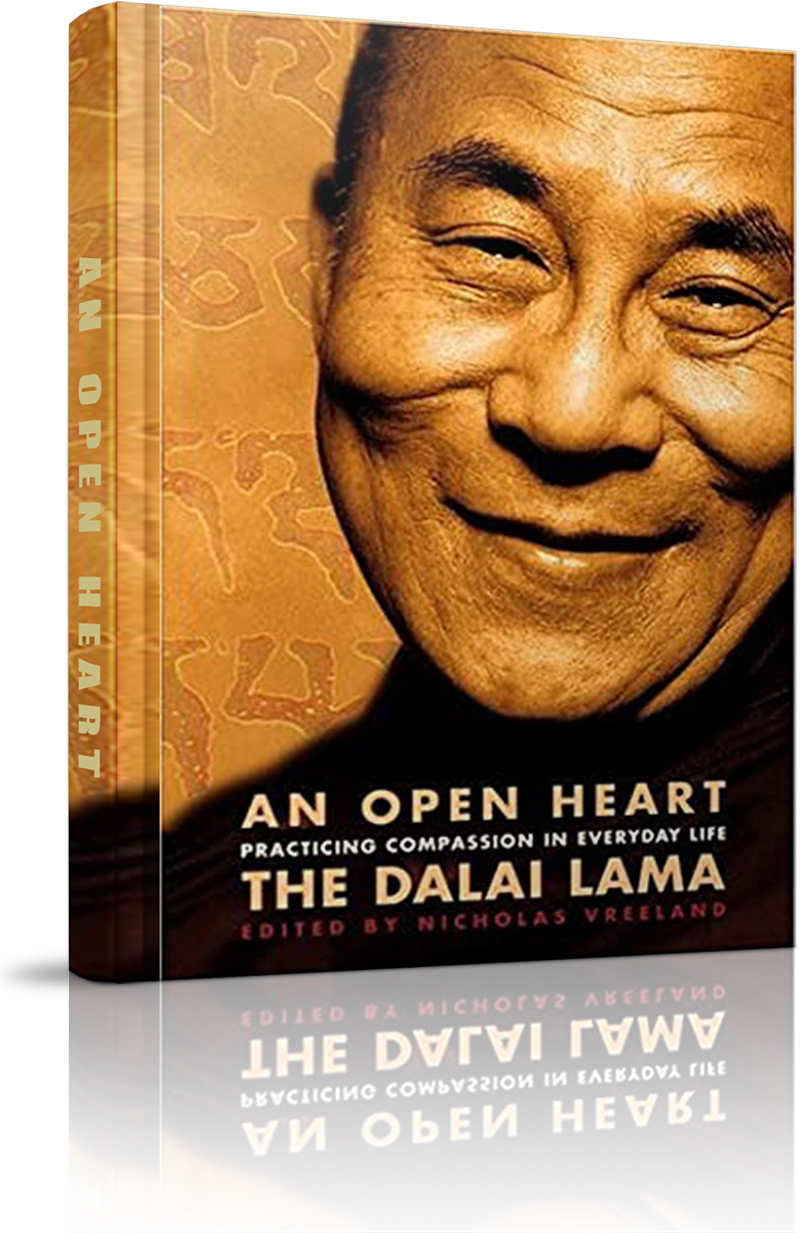Người cầu đạo ví như kẻ mặc áo bằng cỏ khô, khi lửa đến gần phải lo tránh. Người học đạo thấy sự tham dục phải lo tránh xa.Kinh Bốn mươi hai chương
Hương hoa thơm chỉ bay theo chiều gió, tiếng thơm người hiền lan tỏa khắp nơi nơi. Kinh Pháp cú (Kệ số 54)
Điều quan trọng không phải vị trí ta đang đứng mà là ở hướng ta đang đi.Sưu tầm
Nên biết rằng tâm nóng giận còn hơn cả lửa dữ, phải thường phòng hộ không để cho nhập vào. Giặc cướp công đức không gì hơn tâm nóng giận.Kinh Lời dạy cuối cùng
Chớ khinh tội nhỏ, cho rằng không hại; giọt nước tuy nhỏ, dần đầy hồ to! (Do not belittle any small evil and say that no ill comes about therefrom. Small is a drop of water, yet it fills a big vessel.)Kinh Đại Bát Niết-bàn
Đừng cư xử với người khác tương ứng với sự xấu xa của họ, mà hãy cư xử tương ứng với sự tốt đẹp của bạn. (Don't treat people as bad as they are, treat them as good as you are.)Khuyết danh
Chúng ta không có khả năng giúp đỡ tất cả mọi người, nhưng mỗi người trong chúng ta đều có thể giúp đỡ một ai đó. (We can't help everyone, but everyone can help someone.)Ronald Reagan
Người cầu đạo ví như kẻ mặc áo bằng cỏ khô, khi lửa đến gần phải lo tránh. Người học đạo thấy sự tham dục phải lo tránh xa.Kinh Bốn mươi hai chương
Hãy tin rằng bạn có thể làm được, đó là bạn đã đi được một nửa chặng đường. (Believe you can and you're halfway there.)Theodore Roosevelt
Kẻ yếu ớt không bao giờ có thể tha thứ. Tha thứ là phẩm chất của người mạnh mẽ. (The weak can never forgive. Forgiveness is the attribute of the strong.)Mahatma Gandhi
Ai sống một trăm năm, lười nhác không tinh tấn, tốt hơn sống một ngày, tinh tấn tận sức mình.Kinh Pháp cú (Kệ số 112)
Trang chủ »» Danh mục »» SÁCH ANH NGỮ HOẶC SONG NGỮ ANH-VIỆT »» An Open Heart »» Chapter 3: The material and immaterial world »»
An Open Heart
»» Chapter 3: The material and immaterial world
 Xem Mục lục
Xem Mục lục  Vietnamese || Đối chiếu song ngữ
Vietnamese || Đối chiếu song ngữ
- none
- Introduction
- Chapter One: The desire for happiness
- Chapter Two: Meditation - A beginning
- »» Chapter 3: The material and immaterial world
- Chapter 4: Karma
- Chapter 5: The afflictions
- Chapter 6: The vast and the profound: Two aspects of the Path
- Chapter 7: Compassion
- Chapter 8: Meditating on compassion
- Chapter 9: Cultivating equanimity
- Chapter 10: Bodhicitta
- Chapter 11: Calm abiding
- Chapter 12: The nine stages of calm abiding meditation
- Chapter 13: Wisdom
- Chapter 14: Buddhahood
- Chapter 15: Generating Bodhicitta
- Afterword (Khyongla Rato and Richard Gere)
- none

In our physical world, things come into being by the combined force of causes and conditions. A sprout is able to arise because of a seed, water, sunshine, and rich garden soil. Without these elements, the sprout would not have the conditions it needs to germinate and poke through the earth. In the same way, things cease to exist when they meet with the circumstances and conditions for their ending. If matter could evolve free of causation, then either everything would exist eternally in the same state, as things would have no need for causes and conditions, or nothing would come into being at all, there being no way for anything to occur. Either a sprout would exist without the need for a seed or the sprout could not come into existence at all. Thus, we can appreciate that causation is a universal principle.
In Buddhism we talk of two types of causes. First there are the substantial ones. In the metaphor above, this would consist of the seed, which, with the cooperation of certain conditions, generates an effect that is in its own natural continuum, i.e., the sprout.
The conditions that enable the seed to generate its sprout - water, sunlight, soil, and fertilizer - would be considered that sprout’s cooperative causes or conditions. That things arise in dependence upon causes and conditions, whether substantial or cooperative, is not because of the force of people’s actions or because of the extraordinary qualities of a Buddha. It is simply the way things are.
In Buddhism we believe that nonmaterial things behave in much the same way as material ones do. At the same time, from the Buddhist point of view, our ability to perceive physical matter cannot provide the sole basis for our knowledge of the world. An example of a nonmaterial thing might be the concept of time. Time is concomitant with the physical world but cannot be pointed to as existing in any material way. And there is also consciousness, the means by which we perceive things and experience pain and pleasure. Consciousness is held not to be physical.
Though not physical, our states of mind also come about by causes and conditions, much the way things in the physical world do. It is therefore important to develop familiarity with the mechanics of causation. The substantial cause of our present state of mind is the previous moment of mind. Thus, each moment of consciousness serves as the substantial cause of our subsequent awareness. The stimuli experienced by us, visual forms we enjoy or memories we react to, are the cooperative conditions that give our state of mind its character. As with matter, by controlling the conditions, we affect the product: our mind. Meditation should be a skillful method of doing just this, applying particular conditions to our minds in order to bring about the desired effect, a more virtuous mind.
Basically, this works in two ways. One way occurs when a stimulus or cooperative condition gives rise to a state of mind in the same key. An example of this dynamic might be when we mistrust someone and find that the mere thought of that person occasions more dark feelings.
Other states of mind oppose each other, as when we cultivate a sense of confidence, thereby countering our depression or loss of faith in ourselves.
As we recognize the effects of cultivating different mental qualities, we see how we can bring about changes to our state of mind. We must remember that this is simply the way the mind works. We can utilize this mechanism to further our spiritual development.
As we saw in the last chapter, analytical meditation is the process of carefully applying and cultivating particular thoughts that enhance positive states of mind and diminish and ultimately eliminate negative ones. This is how the mechanism of cause and effect is utilized constructively.
I profoundly believe that real spiritual change comes about not by merely praying or wishing that all negative aspects of our minds disappear and all positive aspects blossom. It is only by our concerted effort, an effort based on an understanding of how the mind and its various emotional and psychological states interact, that we bring about true spiritual progress. If we wish to lessen the power of negative emotions, we must search for the causes that give rise to them. We must work at removing or uprooting those causes. At the same time, we must enhance the mental forces that counter them: what we might call their antidotes. This is how a meditator must gradually bring about the mental transformation he or she seeks.
How do we undertake this? First we identify our particular virtue’s opposing factors. The opposing factor of humility would be pride or vanity. The opposing factor of generosity would be stinginess. After identifying these factors, we must endeavor to weaken and undermine them. While we are focused on these opposing factors, we must also be fanning the flames of the virtuous quality we hope to internalize. When we feel most stingy, we must make an extra effort to be generous. When we feel impatient or judgmental, we must do our utmost to be patient.
When we recognize how our thoughts have particular effects upon our psychological states, we can prepare ourselves for them. We will then know that when one state of mind arises, we must counter it in a particular way; and if another occurs, we must act appropriately. When we see our mind drifting toward angry thoughts of someone we dislike, we must catch ourselves; we must change our mind by changing the subject. It is difficult to hold back from anger when provoked unless we have trained our mind to first recollect the unpleasant effects such thoughts will cause us. It is therefore essential that we begin our training in patience calmly, not while experiencing anger. We must recall in detail how, when angry, we lose our peace of mind, how we are unable to concentrate on our work, and how unpleasant we become to those around us. It is by thinking long and hard in this manner that we eventually become able to refrain from anger.
One renowned Tibetan hermit limited his practice to watching his mind. He drew a black mark on the wall of his room whenever he had an unvirtuous thought. Initially his walls were all black; however, as he became more mindful, his thoughts became more virtuous and white marks began to replace the black ones. We must apply similar mindfulness in our daily lives.
MUA THỈNH KINH SÁCH PHẬT HỌC
DO NXB LIÊN PHẬT HỘI PHÁT HÀNH
Mua sách qua Amazon sẽ được gửi đến tận nhà - trên toàn nước Mỹ, Canada, Âu châu và Úc châu.
Quý vị đang truy cập từ IP 216.73.216.157 và chưa ghi danh hoặc đăng nhập trên máy tính này. Nếu là thành viên, quý vị chỉ cần đăng nhập một lần duy nhất trên thiết bị truy cập, bằng email và mật khẩu đã chọn.
Chúng tôi khuyến khích việc ghi danh thành viên ,để thuận tiện trong việc chia sẻ thông tin, chia sẻ kinh nghiệm sống giữa các thành viên, đồng thời quý vị cũng sẽ nhận được sự hỗ trợ kỹ thuật từ Ban Quản Trị trong quá trình sử dụng website này.
Việc ghi danh là hoàn toàn miễn phí và tự nguyện.
Ghi danh hoặc đăng nhập
... ...


 Trang chủ
Trang chủ










